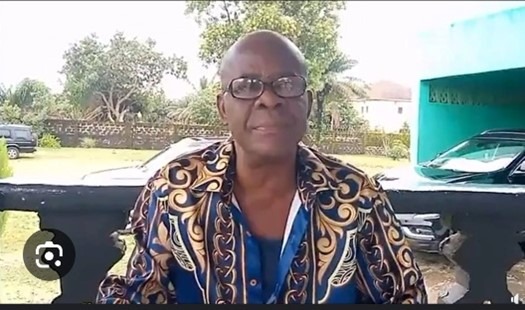Paragraph 1: Supreme Court Ruling Upholds Constitutional Order in Liberian House of Representatives
The Supreme Court of Liberia has delivered a landmark ruling, restoring constitutional order to the House of Representatives following a protracted leadership crisis. The Court invalidated the election of Representative Richard Koon as Speaker and nullified all legislative actions taken by his faction, declaring them unconstitutional. This decision stemmed from a legal challenge filed by the legitimate Speaker, J. Fonati Koffa, who accused Koon and his supporters of violating established constitutional procedures for legislative leadership. The Court’s intervention reaffirms its authority as the final arbiter of constitutional matters, ensuring adherence to the rule of law and preserving the integrity of the legislative process.
Paragraph 2: NPP Chairman Emeritus Lauds Supreme Court Decision, Emphasizes Importance of Constitutional Adherence
Chief Cyril Allen, Chairman Emeritus of the National Patriotic Party (NPP), welcomed the Supreme Court’s ruling, describing it as a victory for Liberian democracy and the Constitution. He emphasized that the decision transcends personal political gain, representing instead a crucial step towards strengthening democratic institutions. Chief Allen stressed the importance of upholding constitutional principles, stating that individuals must be willing to defend the rule of law to safeguard the nation’s democratic progress. He lamented the delayed judicial processes that contributed to the House leadership crisis, underscoring the need for timely and decisive action in resolving constitutional disputes.
Paragraph 3: Criticisms Leveled at President Boakai’s Handling of the Legislative Crisis and Calls for Renewed Focus on Economic Development
Chief Allen expressed disappointment with President Joseph N. Boakai’s handling of the House of Representatives’ power struggle, criticizing the President’s perceived inaction despite his extensive experience in governance. Allen urged President Boakai to draw upon past successes in agricultural development, specifically referencing the Lofa County and Bong County projects, which significantly contributed to employment generation and economic growth. He advocated for renewed investment in Liberia’s untapped fishing industry, emphasizing the potential of the nation’s extensive coastline and the need for modern fishing vessels and processing facilities.
Paragraph 4: Revisiting Past Economic Successes and Advocating for Investment in Key Sectors
Chief Allen also highlighted the historical success of Liberia’s timber and plywood industry, including the notable example of a US$33 million plywood plant in Buchanan, Grand Bassa County, which exported its products to neighboring countries and Asia. He argued that revisiting and revitalizing such industries could contribute significantly to Liberia’s economic recovery and future growth. Allen’s call for investment in agriculture and fishing underscores the need for diversification of the Liberian economy and a focus on sectors with high growth and employment potential.
Paragraph 5: Supreme Court Asserts Authority to Interpret Constitutional Law and Uphold Legislative Procedures
The Supreme Court’s ruling unequivocally asserted its power to interpret the law and ensure adherence to constitutional principles within all branches of government. Citing Articles 33 and 49 of the 1986 Constitution, the Court reiterated the established procedures for presiding over legislative proceedings, emphasizing the exclusive authority of the Speaker or, in their absence, the Deputy Speaker. This clarification reinforces the principle of separation of powers while maintaining the Court’s ultimate authority to resolve constitutional disputes and ensure the proper functioning of government.
Paragraph 6: Rejected Ruling and Accusations of Judicial Overreach from Ousted Speaker Koon
Despite the Supreme Court’s definitive ruling, Representative Koon rejected the decision, arguing that his removal from the Speakership was conducted lawfully by a two-thirds majority in accordance with Article 49 and House Rule 9(a). He accused the Court of overstepping its bounds and interfering in the internal affairs of the legislature. This rejection of the Court’s authority highlights the ongoing political tensions surrounding the leadership dispute and underscores the challenges in achieving a universally accepted resolution. The statement issued by Koon, bearing the Speaker’s seal, further emphasizes his continued claim to the position and sets the stage for potential further legal and political maneuvering.














